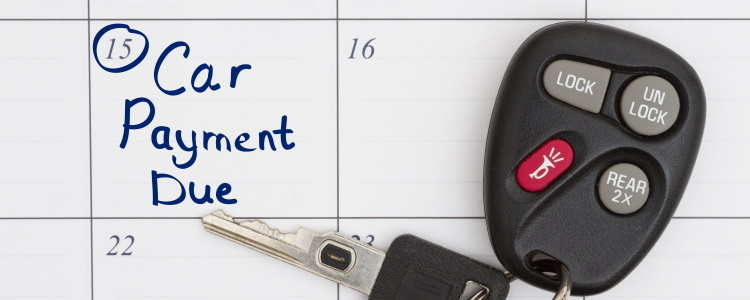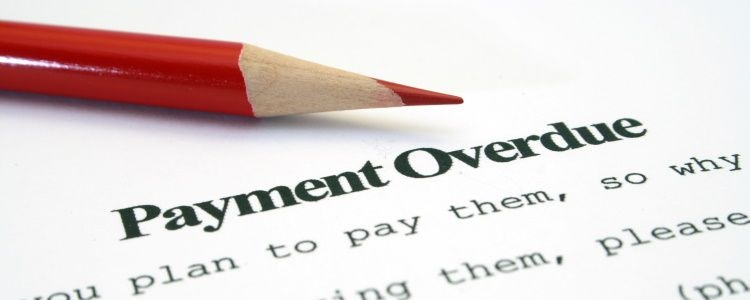Many of Americans are feeling the strain of the coronavirus and how it's impacting the economy. If you're having trouble making your car loan payment, you should contact your lender to see what they can do for you. In situations where you're temporarily unable to make your loan payment, lenders may grant you an auto loan deferment. Let's take a look at what that means, as well as some other options you can explore.
How Does Car Loan Deferment Work?
 When you defer a loan, it means temporarily suspending payments for a short period of time. In order to defer your car loan payment(s), your lender first has to agree to a deferment. This isn't an option with every lender, so it's important to check with yours as soon as you think you might miss a payment.
When you defer a loan, it means temporarily suspending payments for a short period of time. In order to defer your car loan payment(s), your lender first has to agree to a deferment. This isn't an option with every lender, so it's important to check with yours as soon as you think you might miss a payment.
Typically, lenders that allow deferment only extend the term for a brief time – usually no more than 30 to 90 days. There are some exceptions to this, and it varies from lender to lender. Additionally, lenders may have different options when it comes to deferment. Some offer the option of skipping a payment or two, while others may allow you to temporarily make lower payments.
In many cases, deferring an auto loan is as simple as calling your lender, or checking your lender’s website to see if you can skip a payment. In some cases, a lender might require you to write a hardship letter. This is a letter explaining why you need the deferment, and your current income situation.
You may also have to provide proof of how and why your income has changed, in case they require it. In addition, these payments aren’t just going away. They're added to the end of your loan term, so you still have to make them – you just won't have to make them right now.
Should You Ask for a Deferment?
If you're having trouble making your payment or are about to, a deferment could be right for you, but it isn't the right solution in every case. There are situations where a deferment may be in your best interest, such as a medical emergency, unexpected expenses, a temporary layoff, or changes in your income.
If you don't expect your income situation to get back to normal soon, or you're always having trouble making ends meet, a deferment may not be the solution. In fact, not all requests for deferment are approved, even if a lender offers the option.
In some cases, lenders may limit the number and length of deferments you can request per year, and also check your payment history on the loan to see if you qualify.
What to Do Instead of Deferment
If a deferment isn't the right choice for you, or you're turned down for one from your lender, you're not out of options. The most important thing is to address the issue, and not let your car loan lapse into default. If this happens, you're most likely going to face a repossession – making your financial situation and your ability to get another auto loan worse.
Instead of a deferment, you typically have two options:
- Refinancing – Refinancing a car loan is the process of replacing your current auto loan with a different one. If you qualify for refinancing, you may have the option of a lower interest rate, or a longer loan term. Qualifying for a lower APR not only lowers your monthly payment, it lowers your total loan amount. Extending the loan term lowers your monthly payment, but with the same interest rate, it costs you more in the long run.
- Trading in – If you're unable to make the payments on your current vehicle, you may be able to trade it in for something more affordable. The trade-in process can be as simple as having your car appraised, picking out a less expensive vehicle, and signing a contract. Because you still owe on your current loan, the dealer pays off your current lender and you get any equity, which you can use as a down payment on your next car. However, if you have negative equity you're going to have to pay the difference between your vehicle's value and what you owe on the loan.
A third option does exist, but it's really a last resort: a voluntary surrender. This means that you contact your lender and turn your car in. Doing this cancels your contract, but you’re going to have to pay any deficiency balance, plus repossession fees, and you're going to have a repossession listed on your credit report for the next seven years, even though you did it voluntarily.
Let Us Help You Find a More Affordable Vehicle
If you find yourself unable to make the payments on your car loan due to the coronavirus pandemic, contact your lender. Many automakers are willing to help, and you can find a complete list of options on CarsDirect, our sister site.
If you find that deferment isn't an option, and getting a more affordable vehicle is your next choice, we want to help you find a dealership to work with in your area. At Auto Credit Express, we're partnered with a large network of dealers all across the country that work with lenders who can help people in unique credit situations.
To get the process started now, fill out our fast and free auto loan request form and we'll get to work for you.
















